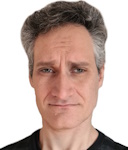“Dad, can we go on vacation?”
“Dad, can we go on vacation?”
Santi, my little four year old son, has been insistently repeating this question in recent weeks. In early January we went on vacation to the wonderful area of Lake Vichuquén and the experience was so meaningful to him that since he returned to the big city he wants to go back on vacation.
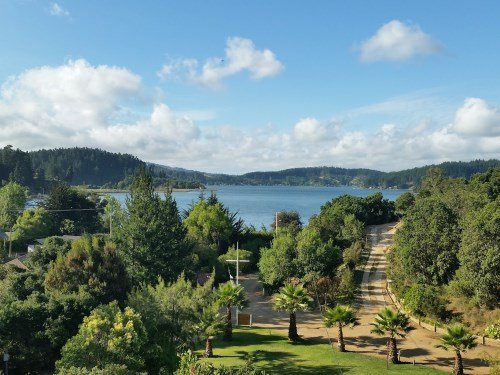
Although we had already gone on vacation in previous years, apparently this year was the first time Santi realized that holidays were a special and milestone important in his life. At his young age, he just realized that during those couple of weeks a lot of things he loved occurred around him:
- mom and dad did not have to go to the office
- his older brother did not go to school, and his baby sister did not go to the nursery
- he did not go to the kinder garden
- and even more important: we all traveled together to a gorgeous place where he had the chance to run, play, swim, sail and eat nice food.
How is he not going to be eager to repeat it?
Work and Environment
“I dream of arriving to the office in the morning and sitting down to work looking through the window at grazing cows and sheep”
Several friends and co-workers have heard me saying something like that.
I’ve spent most of my entire life in Santiago, a city where every year there are fewer green areas and, of course, it is impossible to see cows, sheep, or any animal of the country. I studied here, I grew up here, I’ve risen my children here and I work here.
However, I do not like living in a city like Santiago. Noise, pollution, traffic jams, people’s high levels of stress, lack of empathy among neighbors, large buildings and real estate companies that devastate neighborhoods, are some of the reasons that make me think of leaving this city.
I also do not like working in Santiago. First, I feel that a place like this promotes stress and decreases the quality of life of those who live here. But also, I feel that game development, like other creative industries, requires an environment with more harmony and balance, an environment conducive to creativity.
In fact, despite what most people believe, videogames are much more than a computer program. Videogames are a creative expression, a manifestation of what a group of game developers think, feel and imagine. Games are an artistic work conceived for the purpose of accomplishing something, an objective: entertain others, convey a message or express an idea.
So I have always felt that big cities, filled with concrete and “civilization”, do not favor the creative work at all, but rather hurt it. And I have the strong impression that I am not the only one who thinks and feels this way.
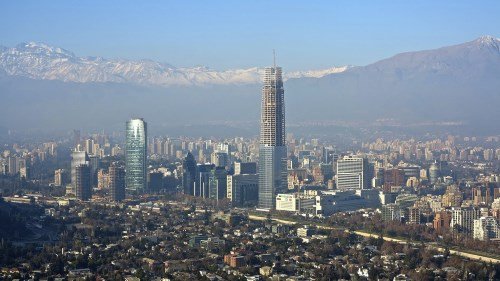
So why do I work in Santiago?
When we started with Wanako Games in 2003, the only reasonable option for the company was to start in Santiago. There was no professional game development industry in Chile, and the country’s capital city was the best alternative to build the strongest business relationships and connectivity with the rest of the world.
Fortunately, in the following years, more game companies have appeared in Chile and, with a slightly more consolidated industry, some of these new companies took the challenge to come away from the capital. Currently, around 20% of the video game studios in Chile are not in Santiago.
Valdivia, Concepción, Valparaiso and Viña del Mar are some of the beautiful cities in which the video game industry is making headway. While some of these cities are also large and share many issues with Santiago, they are not as pronounced and there is a better balance between “civilization” and the “humanity” of the place.
Someday, I hope to move to any of those and leave forever this concrete jungle.
Vacation and Game Development
Fortunately, you can go on vacation. During one, two or three weeks, we have the opportunity to escape from the city where we work and travel to other parts of the country (or the world) to enjoy nature with our family or friends.
Every time I go on vacation, after a few days of enjoying the environment and my family, ideas for new projects, games or other things begin to pop in my mind, almost involuntarily. It has even happened to me that I realize about solutions to programming problems I had in the pre-vacation weeks and had already left behind.
The mind, in a context of greater harmony, begins to work better. Creativity flows, ideas spawn, some projects are born.
In fact, I wrote this blog’s first article one year ago (the Spanish version), while watching the sunset on my mother-in-law’s country home, on the outskirts of Santiago. I had this idea of writing articles several months before, but I could not find neither tranquility nor sufficient concentration to actually write the words. Until I sat down there and enjoyed the view, only then the ideas flowed.
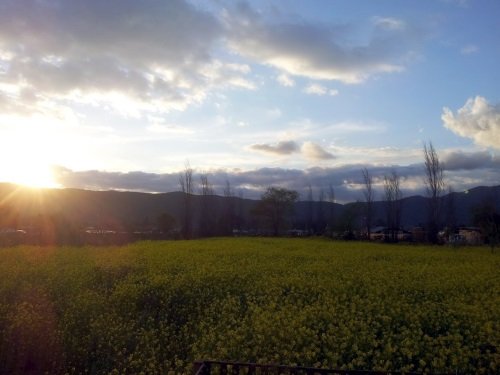
Another example is JPacman, the game that I decided to resurrect a few weeks ago and that became my first Papa Game Dev Project. The original version was developed precisely in the summer of 1999, while I was on vacation, and it was finished in the winter vacation that very same year.
There are also several instances for children to do some productive activities while on vacation. From summer camps to sports schools, every year there are new initiatives to encourage kids and give them the opportunity to explore other experiences during the months they should not attend school.
This past summer, for example, some friends recommended me scientific workshops where children would learn about physical or chemical phenomena through experiments and recreational activities. There are also short programming courses, outdoor activities, and all kinds of sports classes, and even Minecraft levels building workshops, one of the most popular games among the younger generations.
Obviously, vacation time is also to rest, and it is very important not to forget to do so. Using vacation one hundred percent for other projects could turn into intolerable fatigue after going back to the work routine. But if there is a fair balance, I am a firm believer that vacation can be leveraged to explore new ideas and projects.
The dreamed summer camp
What if you could go to the countryside, on the banks of a lake, and develop games for two months? What if you could share all the peace and quiet with other game developers eager to exploit creativity in a natural environment? What if you could also be mentored by other well-known professional developers?
For a nature and game development fan like me, the idea sounds idyllic, almost unreal.
But it is real, it actually exists. It is called Stugan.
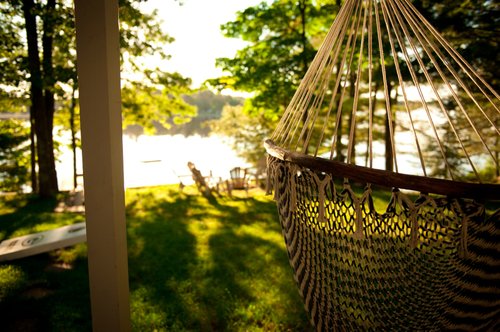
As explained in the website, the initiative was born in Sweden thanks to Oskar Bruman, CEO of Rovio Stockholm, the Angry Birds’ creators Swedish branch, and Tommy Palm, one of the brains behind the success of Candy Crush, from King. Both of them, along with other important industry figures who joined as sponsors and/or mentors, shaped what they call a non-profit acceleration program for aspiring game developers. Remarkable.
Stugan first edition, in 2015, had wide media coverage, weekly YouTube videos, interviews with participants, press articles and a successful final exhibition of all projects that were created during the two months. Despite that, I did not know about Stugan by the media, but thanks to Luis Wong, a Peruvian friend who had the incredible good fortune to visit the place.
Besides being founder, producer and game designer in the Peruvian company LEAP Game Studios, Luis is a journalist by profession and has been devoted in recent years to write several chronicles about the videogame industry. In this context, he visited Stugan during the last days of these productive two months, witnessed the participants experience and met some of the event organizers.
On his return, he wrote two excellent chronicles that I invite you to read, one on the Yorokobu Spanish site and another in the El Comercio Peruvian newspaper. Through these lines you can perceive how special the experience was for that group of developers, and how significant it will be for them in their professional future.
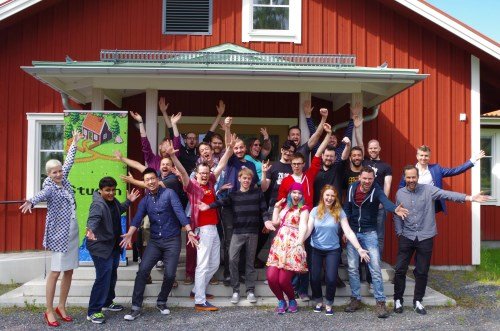
Stugan was so successful that they decided to repeat it. There are not confirmed dates yet, but it was announced that the second edition of Stugan will take place approximately from late June until mid-August 2016.
Candidacies, in fact, are open now until March 31st. All instructions on how to apply are available in their website and, honestly, if such an initiative had existed about fifteen years ago, before my first kid was born, I’m sure I would have tried to get in. I invite you to participate!
One last thought. What we are we waiting for to replicate the Stugan experience in Chile or Latin America?
In our region there are hundreds of wonderful places like the one that Bruman and Palm chose for their initiative. There are also talents and important figures that could support candidates and share their experience.
Perhaps, it is time to start a new project.
Juan Pablo makes videogames since he was 8 and he is a father since 2004. Today, he has three children and he has worked in more than 20 videogames. He got interested on how paternity and the videogame industry are related and he decided to write about it, founding "Papa Game Dev".
Leave a Comment
Your email address will not be published. Required fields are marked *

